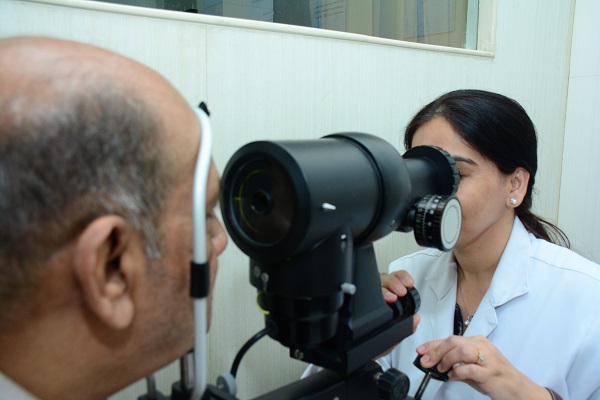Retina Treatment
An essential part of the eye that transforms light into neural impulses that the brain interprets as vision is the retina. Vision impairment or even blindness may result from disorders that damage or otherwise alter the retina. A variety of medical and surgical procedures are included in retina treatment, which aims to identify, control, and cure disorders affecting this vital area of the eye.







What Are Retinal Error Symptoms?
Our capacity to see is mostly dependent on the retina, which receives and processes light before transmitting visual information to the brain. Failure to identify and treat retinal damage in a timely manner can result in severe visual impairment or even blindness. It’s critical to recognize the signs of retinal damage in order to preserve your eye health and take early action.
Treatment Options ?
The severity of retinal abnormalities can range from simple problems to conditions that could endanger vision. Numerous efficient treatment options are now available to address a range of retinal mistakes and abnormalities, owing to the progress made in medical technology and ophthalmic research. The particular illness, its severity, and the demands of each patient determine the best course of action. These are a few typical therapy choices:



Good To Know Retina Treatment Questions
Retinal surgery includes a range of surgical procedures intended to cure diseases affecting the retina’s function, such as tears, detachments, or abnormalities of the retina. When non-invasive therapies like laser therapy or medicine are not enough to solve the problem, it could be suggested. In order to preserve or restore vision, surgery may be used to reattach the retina, remove scar tissue, or correct other defects.
Vitrectomy, scleral buckling, membrane peeling, and macular hole surgery are common forms of retinal surgery. In order to cure disorders such as retinal detachment, a vitrectomy requires removing the vitreous gel; in contrast, scleral buckling entails inserting a silicone band around the eye to maintain the retina. Scar tissue can be removed with membrane peeling, and holes in the central retina can be sealed with macular hole surgery.
Local anesthetic is typically used during retina surgery to numb the affected eye area and keep the patient awake. To help the patient relax, minor sedation may occasionally be administered. Your ophthalmologist will go over your alternatives for anesthesia and the best course of action for your particular procedure.
Depending on the kind of surgery done, there are differences in recovery following retinal surgery. In the early days, it’s natural to experience some discomfort, slight pain, and blurred vision; however, these usually go better as the eye heals. Particular post-operative instructions, such as using prescription eye drops, limiting physical activity, and scheduling follow-up appointments, will be given by your doctor. It could take several weeks or months to fully heal.
You might need to wear an eye patch for a short while following retina surgery in order to protect the eye and promote recovery. The sort of surgery you need and the demands of your particular employment will determine how long you must miss work. You might get advice from your doctor regarding when to get back to your regular activities.
A number of variables, such as the kind and severity of the retinal ailment, when the surgery is performed, and your general eye health, affect how well retinal surgery goes. Even while retinal surgery has a high success rate, eyesight may not always fully recover, particularly if the disorder has resulted in irreparable damage.
Reach Out To Us to Know More on the Services by filling out the Form.